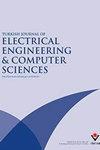Enhancing exploration-exploitation in harmony search for airborne hyperspectral imaging band selection (E3HS)
IF 1.5
4区 计算机科学
Q4 COMPUTER SCIENCE, ARTIFICIAL INTELLIGENCE
Turkish Journal of Electrical Engineering and Computer Sciences
Pub Date : 2023-10-07
DOI:10.55730/1300-0632.4029
引用次数: 0
Abstract
: Hyperspectral imaging has emerged as a prominent area of research in the field of remote sensing science. However, hyperspectral images (HSIs) pose a notable challenge due to the presence of numerous irrelevant and redundant spectral bands exhibiting high correlation. Therefore, it is necessary to enhance the classification performance for HSI processing by selecting the most relevant discriminative spectral bands. To this end, this paper introduces a metaheuristic search method called enhancing exploration-exploitation in harmony search (E3HS). The standard harmony search suffers from many weaknesses, such as premature convergence and falling easily into the local optimum. Consequently, E3HS was proposed to evade falling into the local optimum by creating a balance between exploration and exploitation strategies to accelerate convergence toward the global optimum solution. Finally, two machine learning classifiers (k-nearest neighbor and support vector machine) were employed for hyperspectral image classification at the pixel level. Moreover, the proposed method was compared with the bat algorithm, Archimedes optimization algorithm, particle swarm optimization, standard harmony search, genetic algorithm, and krill herd algorithm. The experimental results demonstrated significant improvement with overall accuracy equal to 87.49%, 94.85%, and 94.41% for the Indian Pines, Pavia University, and Salinas datasets, respectively.加强机载高光谱成像波段选择(E3HS)和声搜索中的勘探开发
本文章由计算机程序翻译,如有差异,请以英文原文为准。
求助全文
约1分钟内获得全文
求助全文
来源期刊

Turkish Journal of Electrical Engineering and Computer Sciences
COMPUTER SCIENCE, ARTIFICIAL INTELLIGENCE-ENGINEERING, ELECTRICAL & ELECTRONIC
CiteScore
2.90
自引率
9.10%
发文量
95
审稿时长
6.9 months
期刊介绍:
The Turkish Journal of Electrical Engineering & Computer Sciences is published electronically 6 times a year by the Scientific and Technological Research Council of Turkey (TÜBİTAK)
Accepts English-language manuscripts in the areas of power and energy, environmental sustainability and energy efficiency, electronics, industry applications, control systems, information and systems, applied electromagnetics, communications, signal and image processing, tomographic image reconstruction, face recognition, biometrics, speech processing, video processing and analysis, object recognition, classification, feature extraction, parallel and distributed computing, cognitive systems, interaction, robotics, digital libraries and content, personalized healthcare, ICT for mobility, sensors, and artificial intelligence.
Contribution is open to researchers of all nationalities.
 求助内容:
求助内容: 应助结果提醒方式:
应助结果提醒方式:


